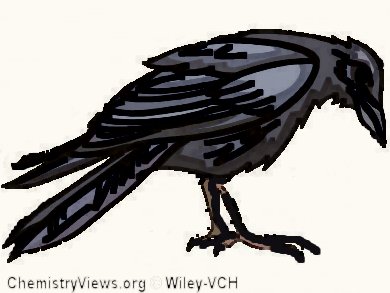Kurt C. VerCauteren and colleagues, United States Department of Agriculture, Animal and Plant Health Inspection Service, Wildlife Services, National Wildlife Research Center, Colorado, USA, show in an experiment that American crows (Corvus brachyrhynchos) function as passive carriers or dispersers of infectious prions. Prions are misfolded proteins inducing the misfolding of proteins into prions in an organism. They are responsible for the transmissible spongiform encephalopathies (TSE) diseases in mammals, including bovine spongiform encephalopathy (BSE) in cattle and Creutzfeldt–Jakob disease (CJD) in humans.
As avian scavengers, crows may consume tissue of animal carcasses infected with prions. The reseachers found that readily available mouse-adapted scrapie (PrPRes) can remain infectious after passage through the digestive tract of crows. They force-fed 20 American crows with PrPRes. Mice, inoculated with fecal extracts obtained from the crows, all tested positive for prion disease.
Crows travel up to 80 km/d, therefore, they can spread the prions over large distances via their feces. Once in the soil, PrPRes may persist more than two years, potentially enabling increased site contamination over time.
Further experimental trials involving TSE prions obtained from ovine, bovine, and cervine carcasses are required to definitively evaluate passage of natural TSEs through digestive systems of scavengers and predators. But similar behaviour is very likely.
- Prion Remains Infectious after Passage through Digestive System of American Crows (Corvus brachyrhynchos),
K. C. VerCauteren, J. L. Pilon, P. B. Nash, G. E. Phillips, J. W. Fischer,
PLoS ONE 2012, 7(10): e45774.
DOI: 10.1371/journal.pone.0045774




